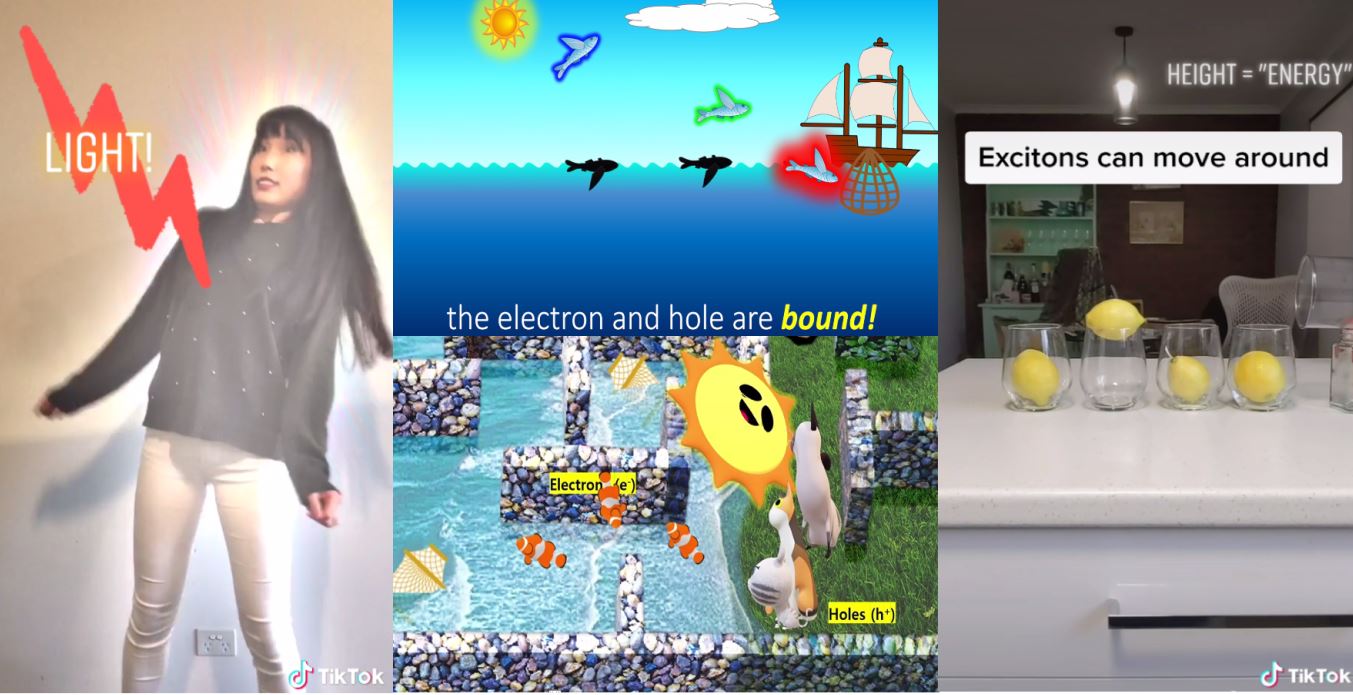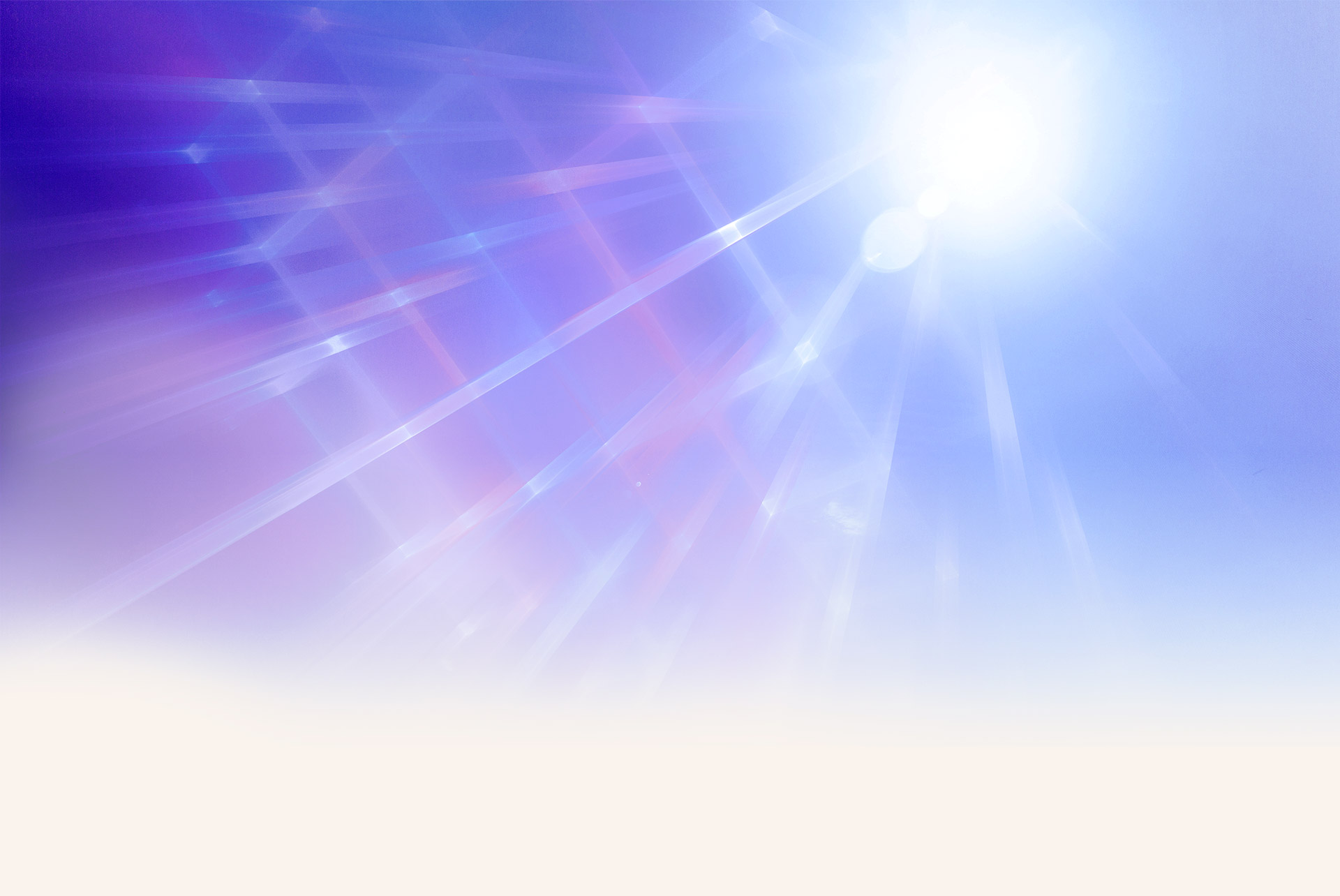

Our public outreach goals are to inform the Australian public about Exciton Science’s key contributions in moving towards a renewable energy future, and to provide opportunities for our researchers to develop their communication skills by engaging with varying external audiences and stakeholders.
Light Conversations launch lecture video
In February, we launched our public lecture series Light Conversations with a major event hosted at Melbourne’s State Library on La Trobe Street. This event saw over one hundred attendees enjoy an accessible lecture about quantum mechanics and solar energy presented by Professors Dane McCamey of UNSW and Jared Cole of RMIT. The talk was followed by a Q&A session moderated by Professor Paul Mulvaney and catering was provided to encourage attendees to mingle with the speakers and Centre members at the conclusion, with highly positive feedback received.
A second Light Conversations lecture was delivered by Dr Wallace Wong from the University of Melbourne in March shortly before COVID-19 restrictions came into effect. Wallace spoke to an intimate audience about Sustainable Solar Energy through Exciton Control at the Royal Society, also on La Trobe Street. He participated in a video interview with the Royal Society viewed over 360,000 times on social media and YouTube.
COVID-19 forced us to reassess our approach to reaching public audiences, prompting us to move much of our focus online.
Continuing public lectures in lockdown, our post-doctorate researcher from RMIT, Dr Nas Meftahi presented an online talk titled A shortcut to property prediction for photovoltaic material through machine learning. This talk designed for members of the Australian Institute of Physics was initially run in early September as a webinar. Due to some technical glitches however, the lecture was instead given pre-recorded and distributed to members over Youtube. Overall, the highly engaging presentation has had more than 100 views.
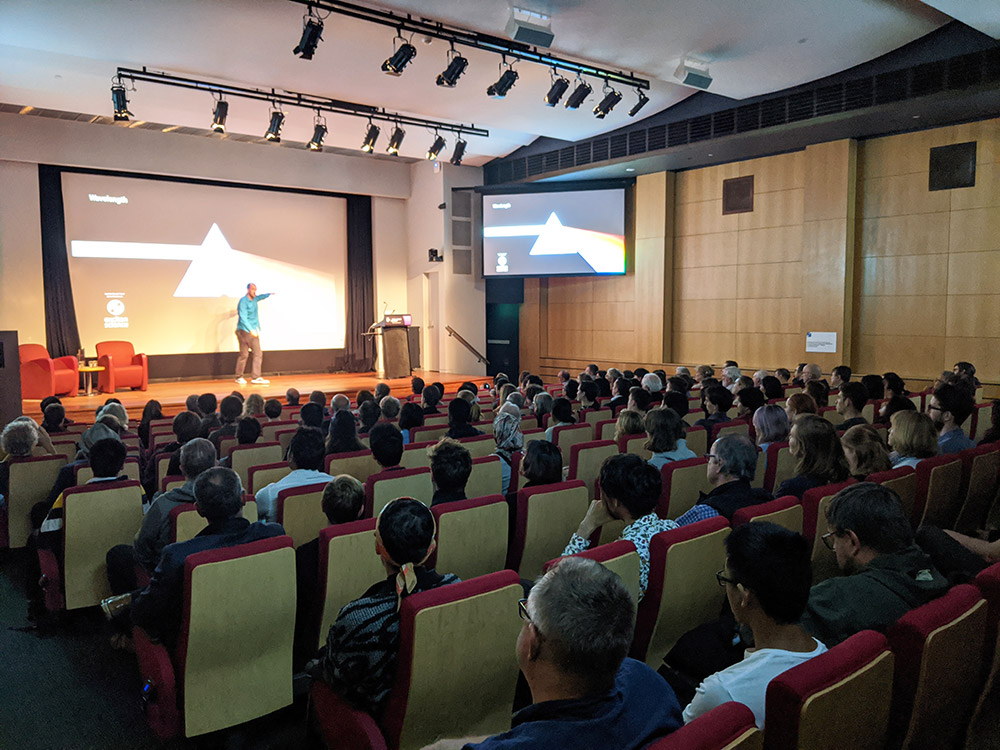
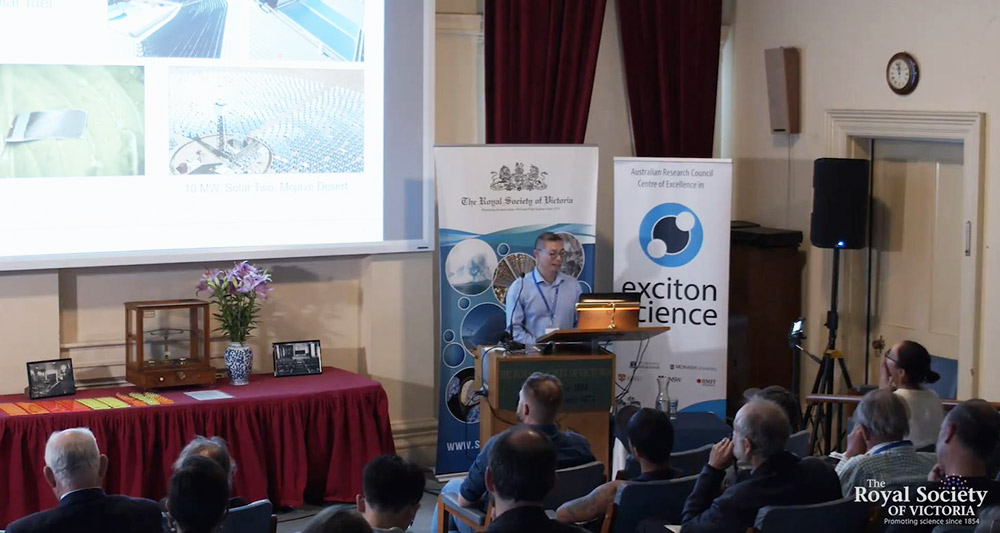
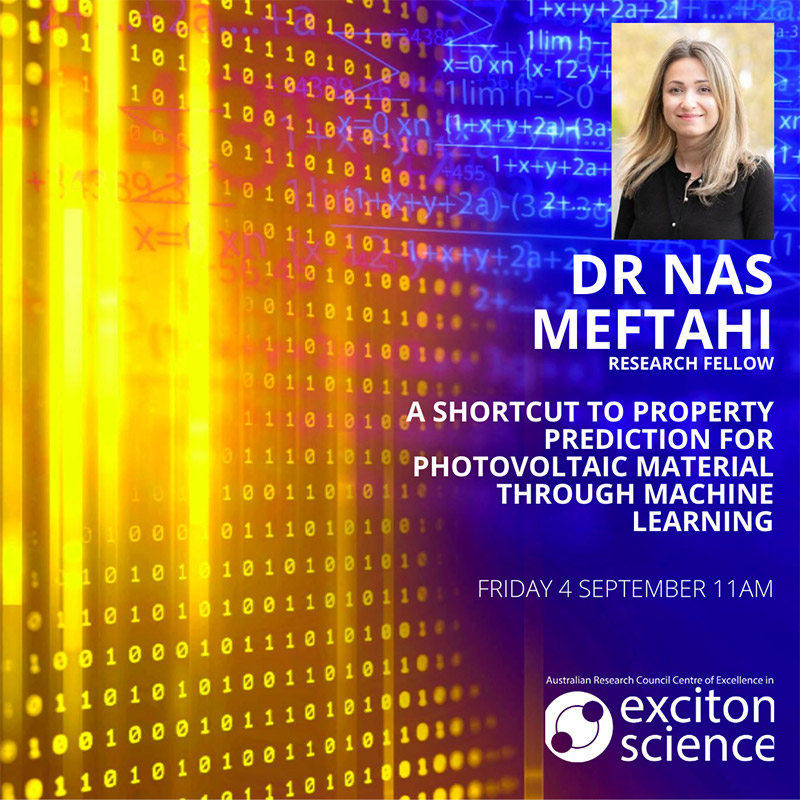
The first video in the Q&ARC video series, piloted and hosted by Exciton Science
One of our major projects was to spearhead the production and release of a collaborative video series from several Centres of Excellence. The series, Q&ARC, was hosted by a different Centre each week and consisted of neatly edited self-filmed Q&A segments from Centre researchers with diverse experiences and backgrounds. Participants addressed the key ideas behind their research, discussed the benefits of working within an ARC Centre of Excellence, and added a personal touch to make themselves more accessible to a non-scientific audience. From Exciton Science, we featured Chief Investigator Dr Girish Lakhwani from the University of Sydney, postdoctoral research Dr Siobhan Bradley from the University of Melbourne and PhD student Roberto Muñoz from Monash University. A total of 11 Centres were involved in the series, which reached over 10,000 users across varying platforms. This collaborative project allowed Media, Communications and Outreach officers from across different Centres to collaborate, and provided our researchers with a valuable opportunity to explain their work using accessible language.
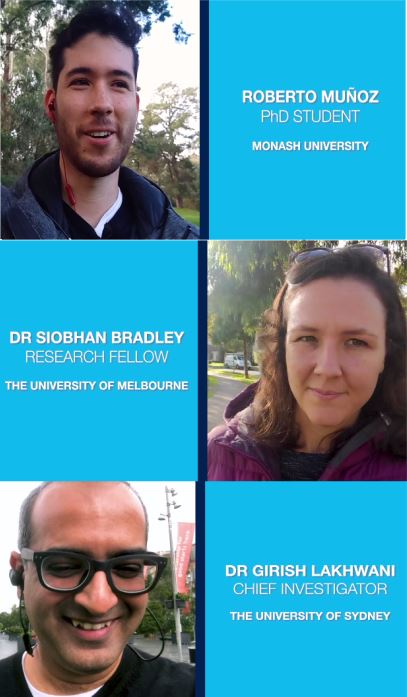
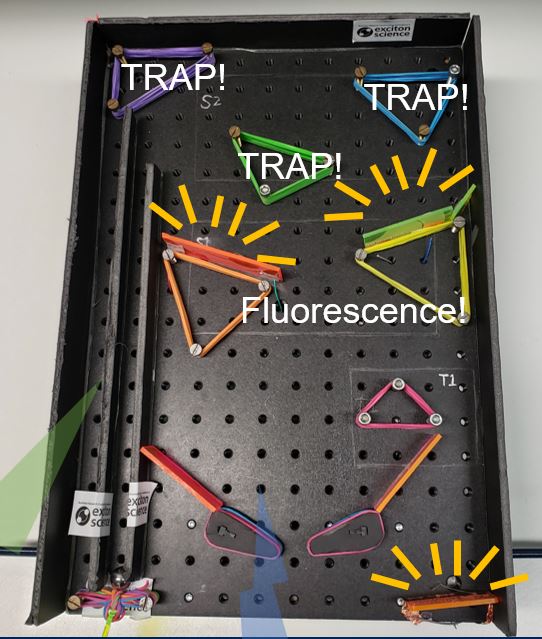
One of the outstanding entries from the sci-comm-petition was a pinball machine depicting electron states by Ken Ghiggino’s team at The University of Melbourne.
In 2020 we ran two internal competitions to provide opportunities for our Centre members to practice their creative communication skills. The first was a ‘Sci-comm-petition’ held in February for research teams to develop a ‘Sci-comm-odity’ that would aid in creatively explaining an aspect of the team’s work. Entries ranged from a board game focused around renewable energy targets, a simple DIY experiment for kids to demonstrate nanoscale self-assembly, a spectroscopy analogy pin-ball machine and even a short mockumentary around quantum dot doping. The entries demonstrated the creativity of our members and many were used to inspire further outreach activities through the year.
PhD student Alison Campbell from The University of Sydney created a narrated animation explaining what an Exciton is.
Later, we challenged our members again by running a video competition for individuals to answer the question ‘What is an exciton?’ in 20 seconds or less. The result was a suite of fun, short videos and animations that employed analogies with cats, fishing boats and even TikTok videos featuring lemons, lighting and music. The entries have been shared successfully on social media and have been a fun way to explain the question we are asked the most at Exciton Science.
